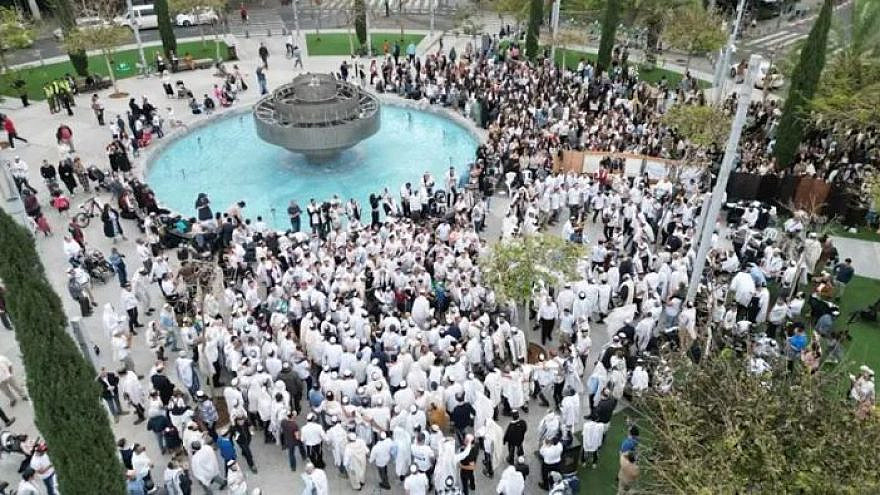Reuven Ladianski, deputy mayor of Tel Aviv-Jaffa, said he intended to “bring to justice” the organizers of an April 11 prayer service held during Passover in the city’s Dizengoff Square.
“Dizengoff Square has become a site of prayer with gender separation between women and men. Outrage! Here, in Tel Aviv’s downtown, they placed a partition to separate men and women,” Ladianski posted to Facebook on Tuesday.
The event, organized by two groups, Rosh Yehudi and the Association of Community Rabbis, was titled “Hallel Prayer in the Square—for Brotherhood and Redemption.” Hallel is a traditional prayer said during the morning service during holidays.
“This is an initiative of out-of-town elements that were joined by other characters,” Ladianski wrote. “I demanded that the municipal inspectors come to the place, remove the partitions and confiscate them. I also demanded that the organizers be fined and prosecuted to the fullest extent possible.
Ladianski, chairman of the Alive—Green Seculars Party, which promotes a secular and environmental agenda and is running for reelection in city council elections this October to keep his seat, added in his message:
“I intend to lead a secular-green front that will take care of protecting the interests of Tel Aviv and you, the resident throughout the term, a period of five years. I have the energy, determination and experience to keep Tel Aviv secular and liberal: without religious coercion, without gender segregation and without religion.”
A segment Thursday on Channel 14 posed the question of whether Ladianski was acting in a discriminatory manner in his criticism of the religious service, noting he ignored public Muslim prayers held in Tel Aviv during Ramadan a year ago, which also included separation between men and women.
Rabbi Ariel Goren of the Kiryat Hatanei Pras Nobel neighborhood in Rishon Letzion, appearing on the program, took issue with Ladianski’s characterization of the prayer as an “outside event.”
“For those who don’t know, there are 600 synagogues in Tel Aviv. There are tens of thousands of religious people. The public who came to the prayers was for the most part Tel Avivians,” Goren said.


























